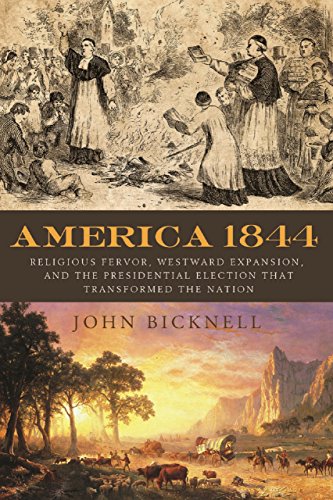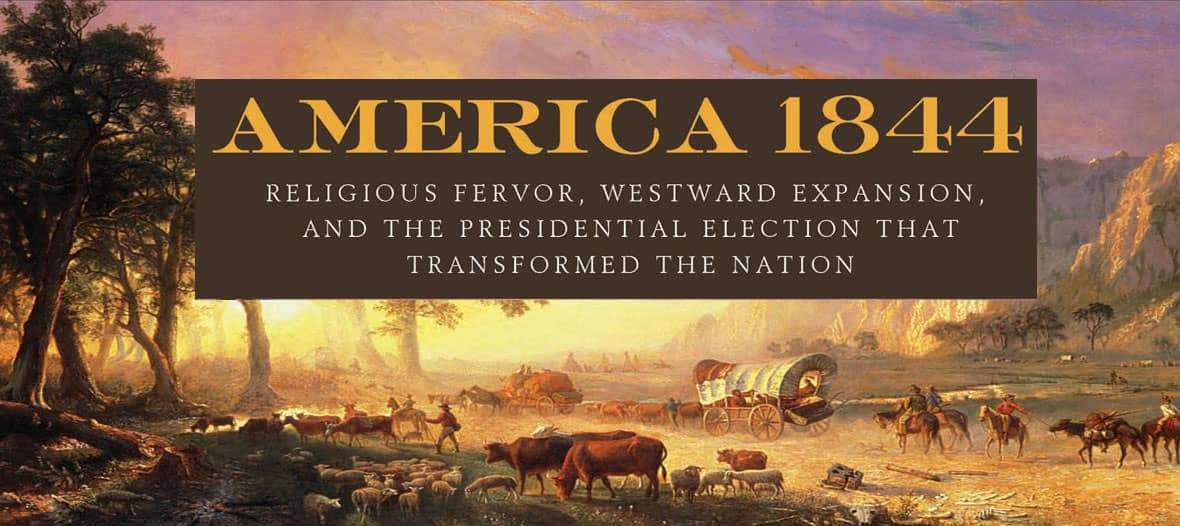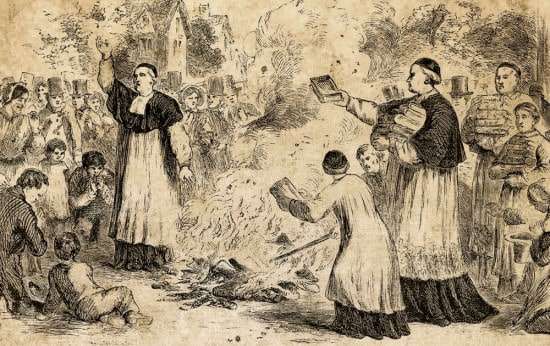America 1844: Religious Fervor, Westward Expansion, and the Presidential Election That Transformed the Nation Kindle Edition by John Bicknell
As this year’s mid-term elections approach, the modern political zeitgeist tells us that America is more fractured today than it has ever been; that the rift between left and right is a chasm that can’t be breached. But a new book by author and journalist John Bicknell shows us that our modern problems can often pale in comparison to the issues that afflicted the nation at other points in its long and often turbulent history.
 The book is America 1844: Religious Fervor, Westward Expansion, and the Presidential Election that Transformed the Nation (Chicago Review Press, 2014). In it, Bicknell brings to life an election as tumultuous as any the republic has ever seen. Among its issues: states’ rights, personal liberty and the expansion of America’s national interests. And all this is told against a backdrop of political in-fighting, back-room maneuvering and strident religious zeal.
The book is America 1844: Religious Fervor, Westward Expansion, and the Presidential Election that Transformed the Nation (Chicago Review Press, 2014). In it, Bicknell brings to life an election as tumultuous as any the republic has ever seen. Among its issues: states’ rights, personal liberty and the expansion of America’s national interests. And all this is told against a backdrop of political in-fighting, back-room maneuvering and strident religious zeal.
Chief among the country’s political problems in 1844 was the growing national debate over slavery, a subject that bitterly divided not just the country, but each of the national political parties. Fragile North-South alliances bound both the Democrats and the Whigs, and each party’s ties—like those of the nation’s—grew more frayed the more the issue was contested. [giveaway giveaway_id=1747 side=”right”]
Complicating the issue, as Bicknell explains, was the political battle over the proposed annexation of Texas. If admitted to the union, would Texas be a free state or a slave state? And, for that matter, could free and slave states continue to co-exist peacefully under one flag?
America 1844 shows how Henry Clay, the Whig candidate; and James K. Polk, the Democratic candidate, each finessed his stance on the slavery and annexation issues in an attempt to appease both northern and southern members of their respective parties—and this only after President John Tyler failed in his attempt to undermine both parties and retain control of the White House himself.
Not enough political and social intrigue for you? The 1844 election also took place in a country reeling with religious turmoil. America 1844 describes a country marred by anti-Mormon and anti-Catholic violence. In addition, in October of that year, thousands of followers of the Baptist preacher William Miller gave up all their worldly possessions in anticipation of a Second Coming that never came, on a day to become known as “The Great Disappointment.”
The narrow victory for (spoiler alert!) Polk, a dark-horse candidate nominated by the Democrats as a compromise for party members split over Texas annexation, forever changed the face of the country, as Bicknell explains in his book. A staunch advocate of the concept of Manifest Destiny (the belief that American settlement was destined to expand throughout the continent), Polk successfully linked the issue of Texas annexation to the ongoing dispute with the British over the Oregon territory—the result being that all the land in question would fall under American domain. Polk beat Clay by just over 39,000 votes—and it’s difficult to imagine how the country might have looked if he hadn’t.
America 1844 is “a thrilling chronicle of America in a critical year,” said Chris DeRose, historian and author of The Presidents’ War, Congressman Lincoln, and Founding Rivals. “In Bicknell’s skilled hands, this incredible cast of characters— presidents and prophets alike—comes to life in all of its glory.” So if you’ve had enough of the badgering going on between today’s politicos and pundits, pick up a copy of America 1844 and see how feverish and fractured the national debate sometimes became in the days when the country was still taking shape.
Buy this Book!
Amazon




